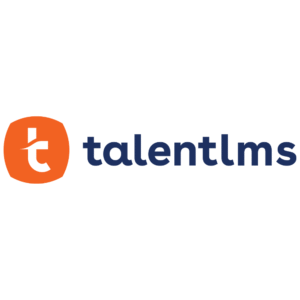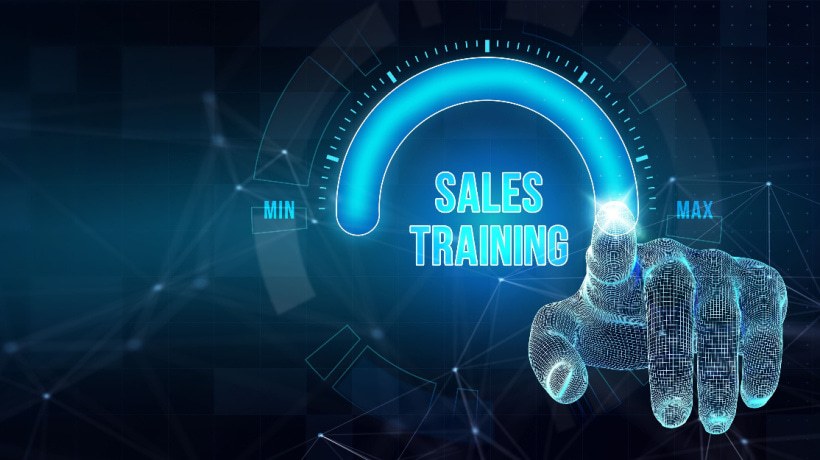The Double-Edged Sword Of AI In Sales
AI is quickly becoming a sales rep's closest ally. From drafting personalized emails to scoring leads, it can supercharge productivity. But with this power comes responsibility. When misused, AI risks can crumble customer trust, mishandle sensitive data, or even step into manipulative practices.
And the risks aren't hypothetical. We've already seen companies face backlash when AI-generated messages contained offensive wording or when "hyper-personalized" outreach crossed privacy boundaries. Small missteps can quickly spiral into reputational damage.
That's why sales training needs to evolve. Not just to teach reps how to use AI, but how to use it ethically. This article explores how organizations can train their teams to balance innovation with integrity.
Why AI Matters In AI-Powered Sales
AI isn't neutral. The way it's designed, trained, and deployed reflects human choices (and sometimes biases). In sales, this could mean unfairly prioritizing certain leads, oversimplifying customer profiles, or pushing customers toward decisions they may not fully understand.
Without proper training, reps may unintentionally misuse AI in ways that damage relationships. For example:
- Relying on AI-generated messages without fact-checking.
- Using customer data without consent.
- Over-automating outreach leads to impersonal experiences.
Ethical training ensures reps don't just "trust the algorithm." Rather, they should be critically evaluating AI outputs while keeping customers front and center.
Teaching Reps Data Privacy And Compliance
Data fuels AI. However, sales reps must know not only what tools can do, but also what they should do.
Key training elements include:
- Consent first – Teaching reps to only use customer data collected with permission.
- Compliance awareness – Covering frameworks like GDPR and CCPA in accessible, sales-relevant ways.
- Secure handling – Understanding the basics of safe data storage and transfer when using AI tools.
This training shouldn't exist in isolation. Sales, IT, and legal teams need to collaborate to ensure reps understand both the technical and ethical sides of compliance. By creating cross-functional learning moments, companies reinforce that responsible AI use is a shared responsibility, not just a sales checkbox.
Balancing Efficiency With Human Empathy
One of AI's biggest advantages is speed. It can craft outreach emails in seconds or surface insights about a customer's behavior instantly. But while AI boosts efficiency, it can never fully replace empathy, the cornerstone of ethical sales.
Sales training should help reps strike a balance:
- AI as a draft, not the final word – Teach reps to refine AI-generated content with a human voice.
- Knowing when to step in – AI may suggest a hard sell, but empathy might call for patience.
- Active listening still matters – Reps should use AI insights as conversation starters, not conversation enders.
By framing AI as an assistant rather than an authority, reps learn to lean on its efficiency while still cultivating authentic relationships.
Recognizing And Avoiding AI Bias
AI systems are only as good as the data they're trained on. If that data contains bias, so will the outcomes. This could show up as:
- Favoring certain demographics in lead scoring.
- Ignoring niche customer groups.
- Reinforcing stereotypes in product recommendations.
Sales training must prepare reps to spot these red flags. Practical exercises could include:
- Reviewing AI-driven recommendations for fairness.
- Comparing human intuition against AI outputs.
- Encouraging reps to question anomalies rather than accept them blindly.
This teaches critical thinking, reminding reps that ethical sales still require human judgment.
Training Reps To Use AI For Transparency, Not Manipulation
Customers value honesty. If an email, proposal, or response is AI-assisted, should reps disclose it? Opinions vary, but transparency builds trust.
Ethical AI sales training could include:
- Disclosing best practices – Teaching reps how to explain AI's role without undermining credibility.
- Respecting autonomy – Training reps to use AI suggestions to guide—not coerce—customer decisions.
- Setting limits – Avoiding "dark patterns" like overly urgent language generated by AI tools.
By equipping reps with these principles, companies foster sales cultures where AI enhances credibility instead of weakening it.
The Role Of Managers And Sales Leaders
Ethical behavior doesn't start at the rep level; it starts at the top. Sales leaders set the tone for how AI is adopted and monitored.
Managers should:
- Model responsible AI use by demonstrating transparency and empathy in their own outreach.
- Regularly review how their teams are using AI tools.
- Create safe spaces for reps to voice concerns about questionable AI outputs.
When leaders normalize conversations about AI ethics, reps are more likely to treat it as an integral part of their daily decision making.
Upskilling Reps With AI Literacy
Before reps can use AI responsibly, they need to understand it. Many salespeople aren't tech experts, so part of ethical training should cover AI literacy basics.
This means explaining what AI can and can't do and teaching reps how to ask the right questions about AI recommendations. Without this foundational knowledge, even the best ethical frameworks may fail. That is because reps won't feel confident enough to challenge the system.
How To Integrate Ethical AI Into Sales Training Programs
Organizations don't need to overhaul everything at once. Instead, ethical AI training can be woven into existing learning programs. For example:
- Scenario-based learning – Simulate cases where AI makes questionable recommendations and let reps practice ethical decision making.
- Peer discussions – Encourage teams to share real examples of when AI helped—or hurt—their process.
- Micro-updates – Since AI tools evolve quickly, bite-sized refreshers help reps stay current.
Pairing these approaches with an LMS platform makes it easier to roll out scalable, engaging, and up-to-date training programs that evolve with the tools themselves.
The Bigger Picture: Building Trust Through Responsible AI
At its core, ethical AI in sales training isn't just about compliance or avoiding bad PR. It's about trust. When reps use AI responsibly, they show customers that efficiency doesn't come at the expense of honesty.
The best sales teams treat ethical AI not as a rulebook, but as a mindset. By encouraging reps to spot issues, share feedback, and improve training materials, companies create a continuous learning loop. And in a fast-changing tech landscape, that adaptability becomes just as important as compliance.
Companies that invest in this type of training aren't just future-proofing their workplace. They're setting a new standard for what it means to sell with integrity in the digital age.
Training For A Responsible Future
AI in sales is here to stay. But whether it strengthens or weakens customer relationships depends on how reps are trained to use it. By prioritizing ethics, organizations can ensure their teams harness AI's power responsibly.
And that might just be the competitive advantage that matters most. After all, customers won't remember which email was written by a bot. But they'll always remember how your sales team made them feel.










